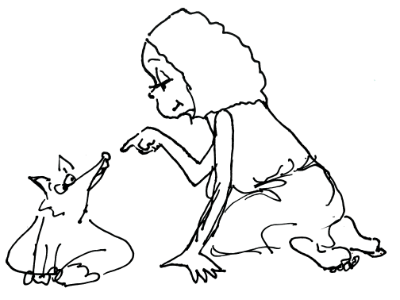Etymology ofostracism: exclusion from public life. In troubled times, the Athenians inscribed on a piece of pottery or a shell(ostrakon in Greek) the name of the person whose ideas they considered most dangerous for the city. The person was banned for ten years. Today the term indicates an unjust social exclusion, because the reasons are imaginary or unsolved. Pejorative twist. Yet there is a place for mistrust based on assumptions. It targets a blur, where a problem is potentially hidden. It is Manichean thinking that creates the unjust aspect: if the person is not proven guilty, he is therefore innocent. This binary justice makes life easier for the courts but is not very savvy in everyday life. Suspicion avoids some disappointment. Reality is clear in the mind that discharges its embarrassments, blurred in the one who assumes them.
The etymology of racism is less identified. No direct Latin origin. The term could be a ratio reprocessing (connection with rationem ‘reason’ which designates the classification by an order to be respected), or from radix (root) or Arabic ras (head). All this brings us back to sorting by an origin criterion. The use of ‘race’ with biological criteria is late and a source of misunderstanding: human physical criteria are indeed of genetic origin but cannot be used to found subspecies. In this area ‘race’ should be replaced by ‘ethnicity’. The disastrous use of the term ‘racism’ has made it even more pejorative than ostracism, when it should be the opposite. Initially ‘ostracism’ served well to exclude, and ‘racism’ only to classify. Here again it is Manichean thought that has caused great harm to ‘racism’. It was about radically separating humans when they have more in common than we think.
Let’s keep in this article the usual impressions you have of these terms: ‘ostracism’ is a bit nasty and ‘racism’ really despicable. But I will try to separate them from you further. Here is a personal etymology: take ‘rat’ at the base of racism, and ‘other’ at that of ostracism.
The rat is a competitor. It parasitizes my house, steals food. I abhor him and yet he only exists, seeks to survive, gets the benefits I enjoy. He does the same thing I do. He looks like me. Racism is an eagerness to conceal resemblance. So I can hate my rival without restraint. I can prevent it from encroaching on my own existence.
The other is a stranger. Caution is required. Lacks an accurate representation about it. Perhaps he is thinking in a way that is very alien to mine. Ostracism is a distrust of what is different from me, because it is a potential threat to my existence.
Do racism and ostracism then act in concert to protect me? Not. As judicious as ostracism is, racism is vicious. The defiance of ostracism targets the non-me, but for racism it is me!! To ostracism I should associate love of self,appreciation of this part of me in others, and not the other way around. Racism is a blindness that makes the other a radical stranger. It does worse than hating a rat. The hatred of the human competitor, more dangerous, reaches even higher heights. It is through it that racism becomes so devastating.
Gender discrimination is racism. The woman belongs to the same species as the man and seeks like him to acquire power. This unbearable similarity generates machismo, male racism towards women. The man exacerbates the submissive character of the woman to conceal the part in her that resembles her, thus eliminating her more easily from the competition.
The circumspection of crossing a gang of young people in a difficult neighborhood is an ostracism. Passers-by are informed that the risk of aggression is higher in such a context. They avoid contact and any provocative attitude. Ostracism is a protection,while racism is aggression.
Important difference to capture. Ostracism does not make people a threat, racism does. Racist aggression demands resistance on our part; we did not ask to participate. While by encountering ostracism it is up to us to act! These pejorative labels must be challenged in the minds of others. Those who manage to erase them are those who wear the hat and patiently demonstrate that he is not at their size, not those who threw him to the ground under the effect of anger.
*
